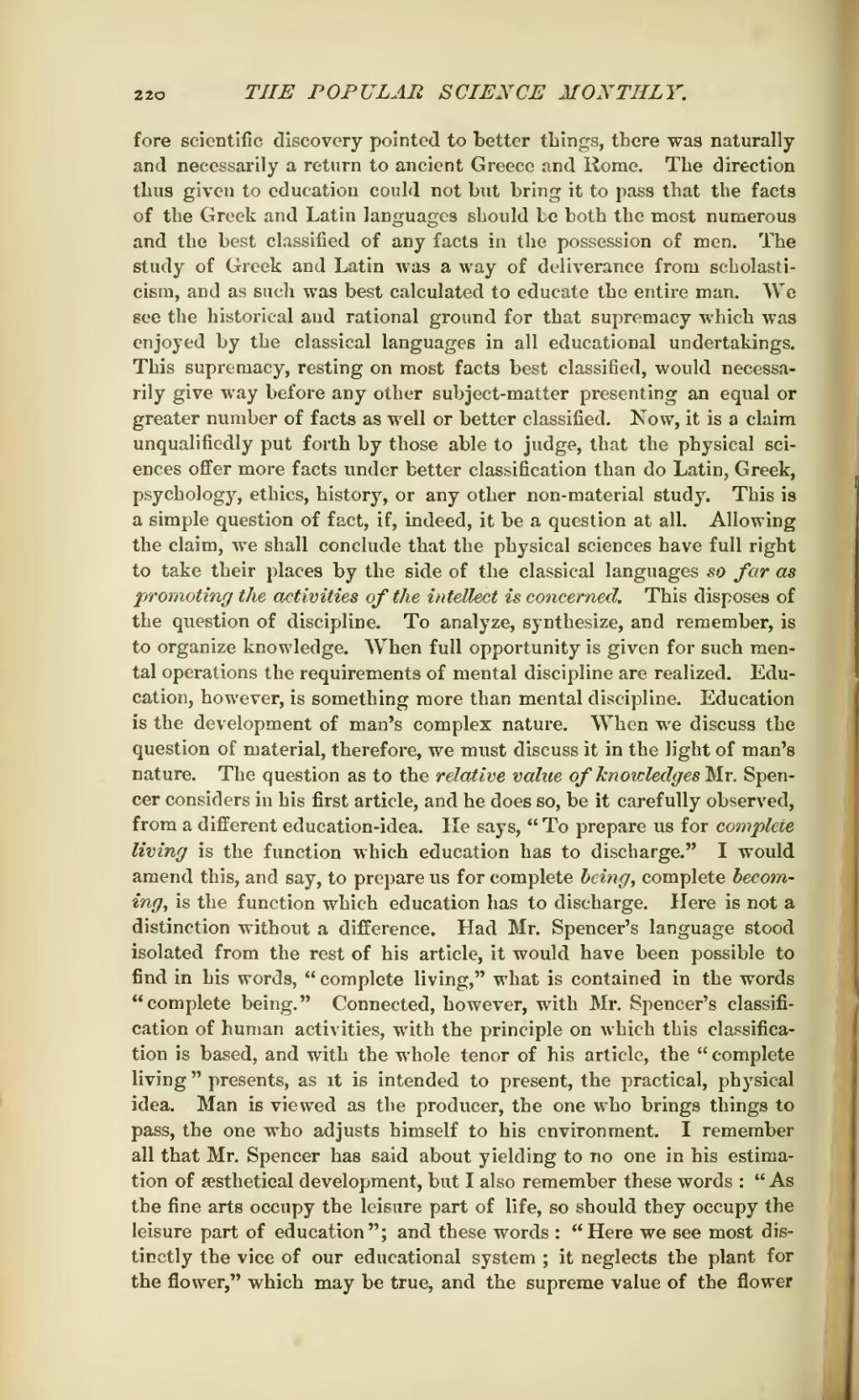fore scientific discovery pointed to better things, there was naturally and necessarily a return to ancient Greece and Rome. The direction thus given to education could not but bring it to pass that the facts of the Greek and Latin languages should be both the most numerous and the best classified of any facts in the possession of men. The study of Greek and Latin was a way of deliverance from scholasticism, and as such was best calculated to educate the entire man. We see the historical and rational ground for that supremacy which was enjoyed by the classical languages in all educational undertakings. This supremacy, resting on most facts best classified, would necessarily give way before any other subject-matter presenting an equal or greater number of facts as well or better classified. Now, it is a claim unqualifiedly put forth by those able to judge, that the physical sciences offer more facts under better classification than do Latin, Greek, psychology, ethics, history, or any other non-material study. This is a simple question of fact, if, indeed, it be a question at all. Allowing the claim, we shall conclude that the physical sciences have full right to take their places by the side of the classical languages so far as promoting the activities of the intellect is concerned. This disposes of the question of discipline. To analyze, synthesize, and remember, is to organize knowledge. When full opportunity is given for such mental operations the requirements of mental discipline are realized. Education, however, is something more than mental discipline. Education is the development of man's complex nature. When we discuss the question of material, therefore, we must discuss it in the light of man's nature. The question as to the relative value of knowledges Mr.Spencer considers in his first article, and he does so, be it carefully observed, from a different education-idea. He says, "To prepare us for complete living is the function which education has to discharge." I would amend this, and say, to prepare us for complete being, complete becoming, is the function which education has to discharge. Here is not a distinction without a difference. Had Mr.Spencer's language stood isolated from the rest of his article, it would have been possible to find in his words, "complete living," what is contained in the words "complete being." Connected, however, with Mr.Spencer's classification of human activities, with the principle on which this classification is based, and with the whole tenor of his article, the "complete living" presents, as it is intended to present, the practical, physical idea. Man is viewed as the producer, the one who brings things to pass, the one who adjusts himself to his environment. I remember all that Mr.Spencer has said about yielding to no one in his estimation of æsthetical development, but I also remember these words: "As the fine arts occupy the leisure part of life, so should they occupy the leisure part of education"; and these words: "Here we see most distinctly the vice of our educational system; it neglects the plant for the flower," which may be true, and the supreme value of the flower
Page:Popular Science Monthly Volume 30.djvu/234
Appearance

